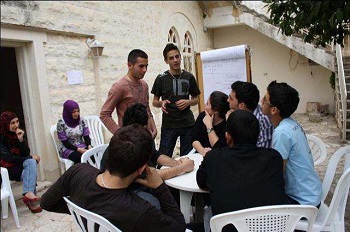
In order to understand the impact of a project you need metrics – tools for measuring what the project has achieved. Not only does this contribute to effective management and monitoring of the project, the data collected is also extremely useful for fundraising and grant applications.
Key lessons:
- At the beginning of the project conduct some kind of survey – a baseline – to record what the situation is in terms of your target population and beneficiaries. At the end of the project conduct an end-of-project survey asking the same or similar questions so that you can reliably compare what happened during the project.
- Target indicators should be used as markers of what you want to achieve. Both the baseline indicators and the target indicators should not only measure outputs i.e. what you produce, but also quantitative and qualitative results.
- More precisely, indicators need to focus on the achievement of the intended outcomes or the main goals of the project. For example, how do you measure that civic awareness has increased? Or that the public services are more accountable?
- Indicators should be segregated by gender, in particular in projects focusing on women, and further indicator segregation should take into account target group specificities and such as youth, elderly, minorities, persons with disabilities.
- It is important to be consistent when collecting indicator data – it is important to ensure that, compared to the baseline survey, the end-of project survey is asking the same kind of questions to the same group of people that participated in the initial baseline survey.
- The development of monitoring tools, such as a results-based performance monitoring plan including pre-/post-training surveys to track the progress of project beneficiaries, is an efficient way to collect indicators in a standardized way.
The following useful lessons come from UNDEF funded projects:

Include monitoring, evaluation and learning in the project design
Projects should have a strong Monitoring, Evaluation and Learning system embedded in the project design with an appropriate budget to support it. There is also need for each project to have a baseline survey, mid-term evaluation and end-line evaluation on the same sample of project beneficiaries for consistence and to clearly trace results and impact.
From Project: Strengthening Young Women’s Civic Participation and Leadership in Uganda
A good baseline study creates a solid design foundation
The baseline study was well conducted and contributed to the project’s effectiveness as a training tool. It also provided needs assessment data concerning the beneficiary groups, representing marginalized communities. The data derived from the study was used to determine the issues to be addressed during the project. It also assisted in the selection of the CSOs and beneficiary groups with which the project would engage.
From Project: Civil Society Support Initiative on Political Marginalization in the Niger Delta in Nigeria

Design indicators that measure both outputs and results
The grantee undertook a good internal monitoring effort to track progress of project indicators, but these indicators primarily tracked outputs. This project might have had more significant impacts but these were invisible to the evaluators. Most of the information on higher level outcomes was anecdotal and without more data, it was not possible to evaluate to which extent results were achieved.
From Project: Citizen Journalists for Free and Fair Elections in Georgia
Be consistent in data collection: follow-up on baseline survey to measure impact
The project did a good baseline survey before its workshops and collected disaggregated data, but the follow up survey asked a different set of questions. Although the follow up survey indicated that youth were using their training, it did not allow for comparisons against the baseline data. This could have quantified the degree of change in these individuals.
From Project: Student Civic Action: Engaging and Empowering Emerging Leaders in Universities in Jordan